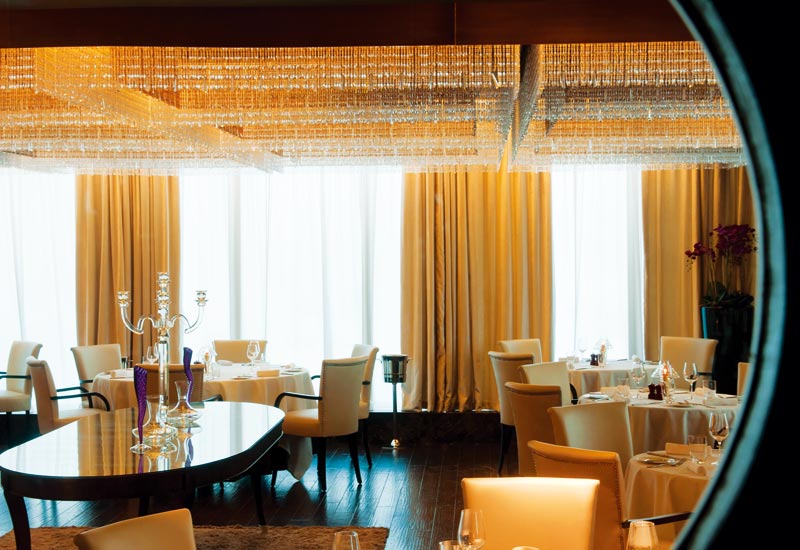 Titanic's decor nods at the famous ship's elegant interiors, with round windows and glass candelabras.
Titanic's decor nods at the famous ship's elegant interiors, with round windows and glass candelabras.
A taste of Titanic
One dimension, however, is of course the food, and Titanic – which derives from White’s former restaurant of the same name in London’s Regent Palace Hotel in the 1990s – delivers a cuisine inspired by the “sunshine flavours” of Spain and the surrounding Mediterranean.
Menu highlights include carpaccio of scallops, fresh ginger and coriander to start; Magret of duck Marco Polo, white peaches and Sauternes roasting juices for main course; and hot raspberry soufflé for dessert.
There is also a choice of fish and seafood, with White explaining that the grilled lobster served three ways – a choice of thermidor, mornay or with garlic and herbs – exemplifies his approach to simple cuisine.

| Advertisement |
He is adamant that when presented with a menu, people will prefer to choose “something that they understand…rather than something which is all a bit posh and messed around with”.
“Fundamentally we are straightforward creatures. People like to play safe especially when they’re spending their hard-earned cash, they don’t want risk. I don’t like risk, I’m quite boring, I like straightforwardness,” he claims.
White’s aversion to risk may well be a throwback to his Michelin days. The path to three-stars is, he acknowledges, the “most exciting journey of any young chef’s life”, but the end result is one he recalls with a tinge of bitterness.
“Let me tell you something – turning yourself into the Christmas fairy is not fun, you don’t want to sit at the top of the tree by yourself and the people you cook for they’re strangers because you’re so expensive.
My average bill in the 90s was GBP 300 ($470) a head so that was way more than the average person earns a week and you cook for complete strangers. What happens is when you get to that three-star level it’s systematic, zero risk, you become this well-oiled machine, you’re almost soulless – everything that I’m against within restaurants. It’s production line cuisine because your risks are so great, you can’t take risks anymore because you have so much to lose.”
Much as White left this technical world behind him 13 years ago, it surely shapes him even now. He admits that he kept Titanic’s first menu “very simple and straightforward” in the interests of “consistency”.
“Where you will be in six to 12 months time is very different – what I’m a believer in is in the end the customer writes out the menu not the chef. They tell you what they want. It will evolve. I want it to go more Mediterranean, that’s me personally,” he adds.
“It’s about evolving, it’s about building your systems, it’s about building your team, it’s about creating a consistency,” he says, unwittingly referencing one of the most common complaints in Dubai’s restaurants – deviating standards and unreliable service.
Article continues on next page ...








 Search our database of more than 2,700 industry companies
Search our database of more than 2,700 industry companies









